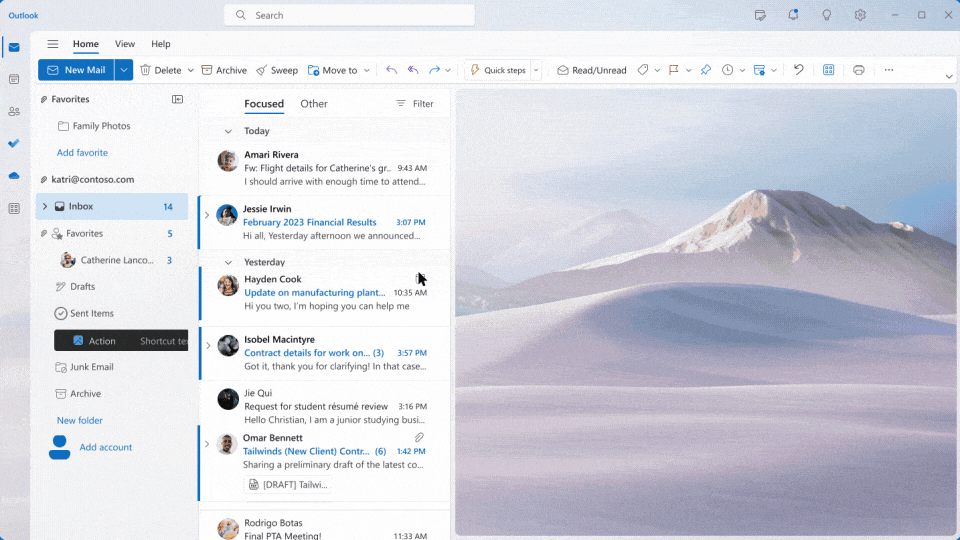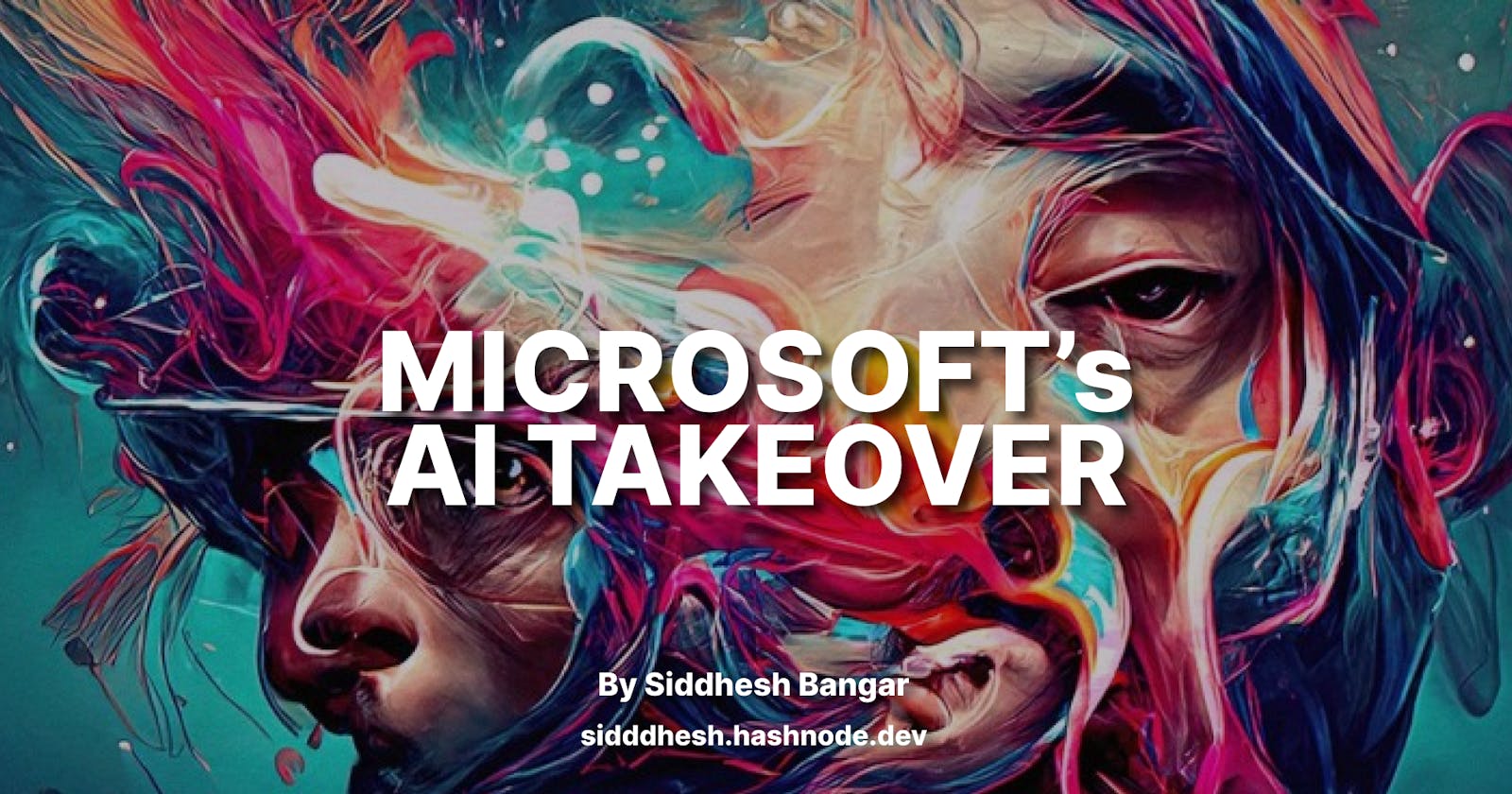In the dynamic realm of artificial intelligence, where breakthroughs and innovations occur at an astonishing pace, Microsoft has emerged as a dominant force, leaving an indelible mark on the AI market. Over the past few months, Microsoft's strategic moves and groundbreaking initiatives have propelled the company to the forefront of the AI revolution.
Through this concerted effort, Microsoft has created a seamless integration of AI functionalities across a myriad of platforms and applications. This interconnected network includes ChatGPT, Bing Chat, Dynamics 365 Copilot, Microsoft 365 Copilot, and the new Windows Copilot, all unified under a comprehensive vision of AI excellence.
At the recent Build conference, Microsoft unveiled their ambitious plans to extend the capabilities of Copilot applications and introduce a standardized plugin system. This transformative step empowers developers to create plugins that seamlessly integrate with Microsoft's array of AI-powered platforms.
By doing so, Microsoft aims to deliver an unparalleled AI experience to users while fostering innovation and collaboration within its expansive ecosystem.

In this blog, we will delve into Microsoft's remarkable journey towards AI market dominance, exploring its rapid expansion of AI products and the strategic moves that have propelled them to the forefront of the industry. Additionally, we will examine the competitive landscape and the challenges Microsoft faces in maintaining its position amidst the dynamic AI market.
🔑 Key Achievements in AI Innovation and Development
Microsoft has firmly established itself as a frontrunner in AI innovation through a series of key achievements. The company has made significant strides in natural language processing, computer vision, machine learning, and other AI domains. One notable breakthrough is the development of ChatGPT, a cutting-edge AI language model that enables seamless and interactive conversations with users.

Moreover, Microsoft has made substantial advancements in AI-driven applications across various industries. For instance, in healthcare, they have leveraged AI to enhance medical imaging analysis, early disease detection, and personalized patient care. In the business realm, Microsoft's AI solutions have transformed operations, enabling intelligent automation, predictive analytics, and streamlined decision-making. By consistently pushing the boundaries of AI technology, Microsoft has set itself apart as an industry leader and a catalyst for innovation.
🤖 Revolutionizing User Experiences through AI Advancements
Microsoft's rapid expansion of AI products has been driven by a commitment to revolutionize user experiences. Through their interconnected AI-powered app ecosystem, Microsoft aims to deliver seamless and personalized interactions for users across multiple platforms. The integration of AI technologies enhances productivity, efficiency, and convenience for individuals and businesses alike.

Microsoft is just being student friendly, why weren't such things got launched when we were in school and college?
With applications like Copilot, Microsoft has reimagined how users interact with software, enabling AI assistance and intelligent suggestions that augment human capabilities. The Copilot applications span various domains, from chat interfaces and virtual assistants to productivity tools and customer service platforms. By harnessing the power of AI, Microsoft empowers users to accomplish tasks more effectively, accelerating decision-making processes and unlocking new levels of productivity.
👊 Challenge from Google
Google, a formidable contender in the AI arena, has been making significant strides in AI initiatives and advancements. The company has a strong focus on developing cutting-edge AI technologies, investing heavily in research and development to push the boundaries of AI capabilities.
Through projects like Google Brain and DeepMind, Google has made groundbreaking contributions to the field of AI. Google has introduced Bard, an advanced AI language model. Bard's compatibility with a wide range of apps and services marks a significant development in Google's AI ecosystem. This compatibility extends not only to Google's own suite of applications, such as Docs, Drive, Gmail, and Maps but also includes integration with third-party partners like Adobe Firefly.

Okay! I understand, Bard is still under a few experimentations and testing!
But by enabling Bard to seamlessly integrate with these apps and services, Google aims to create a unified AI experience across multiple platforms. This integration allows users to leverage the power of AI within familiar environments, streamlining workflows, enhancing communication, and unlocking new possibilities. Bard's versatility and compatibility enhance Google's competitive edge and position the company as a formidable player in the AI market.
📈 The Intensifying Competition in the AI Market
The AI market is witnessing an escalation in competition, with companies like Microsoft and Google vying for dominance. As both giants continue to invest in AI research, development, and partnerships, the race to lead the AI revolution intensifies. The competition extends beyond individual products or applications and encompasses the broader AI ecosystem, including the availability and quality of APIs, developer tools, and cloud infrastructure.

Whoever wins, it is just us getting all the benefits. Isn't it?
With AI being a transformative technology with wide-ranging implications, the stakes are high for companies seeking to establish themselves as leaders in this rapidly evolving landscape. As organizations across industries recognize the potential of AI to drive innovation and gain a competitive edge, the demand for AI solutions continues to grow. This intensifying competition drives accelerated advancements, increased investments, and strategic partnerships, shaping the future of AI and its impact on society.
